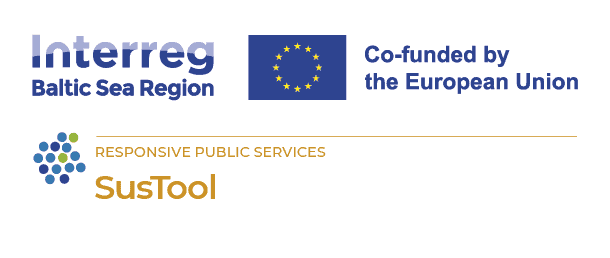
Introducing the ESG Tool: a collaborative effort to enhance sustainability reporting
27 August 2024
In an innovative development, five countries – Estonia, Finland, Latvia, Lithuania, and Poland – have come together to create the ESG Tool—a new resource designed to streamline sustainability reporting for businesses.
This collaborative project aims to simplify the reporting process, making it more accessible and practical for companies striving to meet environmental, social, and governance (ESG) standards. With a focus on user-friendly design and effective implementation, the ESG Tool is set to support businesses in adopting sustainable practices and enhancing transparency.
According to Kristiina Kerge, Tech Innovation Lead at the Let’s Do It Foundation and one of the project partners, sustainable development involves meeting current needs without compromising the ability of future generations to meet their own.
“It’s essential to support initiatives with clear outcomes and impact, focusing on long-term learning solutions in zero waste and circular economy principles through educational psychology. This approach is crucial in developing effective sustainability tools,” says Kerge, who is part of the consortium working on the ESG Tool. She highlights that a significant advancement with the ESG Tool is the creation of a comprehensive sustainability self-assessment tool. “This tool aligns with ESRS standards and emphasizes the importance of sharing positive stories and insights from impact assessments. Effective management decisions are crucial for embarking on the sustainability journey, and businesses are eager to learn and share their experiences. The ultimate goal is to provide structured, trustworthy information on how companies can begin their sustainability efforts, making sustainability a norm in business practices,” explains Kerge. While sustainability reporting is obligatory for some, it offers opportunities for all businesses.
Another partner in the ESG Tool project, Allan Tamme, Head of Innovation and Sustainability at the Estonian Association of Information Technology and Telecommunications, emphasizes that sustainability extends beyond reducing office footprints to encompass operational and financial management. “The ESG Tool is particularly beneficial in helping companies view reporting requirements as a competitive edge rather than a burden. For ICT companies it’s crucial to embrace practices that reduce environmental impact, such as developing sustainable software designed to minimize energy consumption and digital waste,” says Tamme.
Adele Johanson, Data Management Expert at the Ministry of Economic Affairs and Communication of Estonia, who is also a partner of the lead management team, explains that the ESG Tool project aims to reduce the administrative burden associated with new reporting obligations. “A significant challenge has been understanding the standards and developing a user-friendly tool. It’s vital for users to know they’ve met their reporting requirements without unnecessary steps,” claims Johanson.
Johanson, who has participated in numerous sustainability reporting events in Estonia, notes that feedback from seminars and workshops indicates users seek clarity on complex standards, wanting assurance that they’ve met their reporting requirements. “Therefore, developing the ESG Tool involved addressing these challenges and structuring it from basic stakeholder questions to more complex issues like risks and opportunities,” explains Johanson.
According to the project partners, the ideal outcome is for users to find sustainability reporting easy after using the tool multiple times. Ultimately, the ESG Tool should demystify the sustainability reporting process, making it accessible and straightforward for all users.
The project, funded by the Interreg Baltic Sea Region, will be completed by December 31, 2025.
Read more here: https://interreg-baltic.eu/project/sustool/





